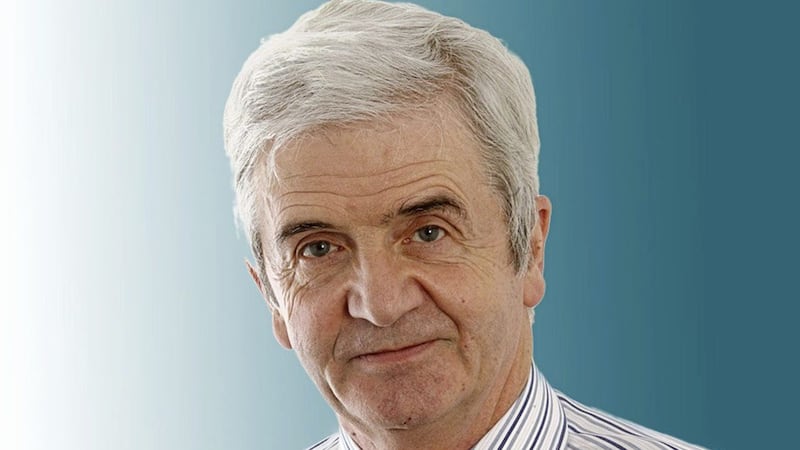One of the more pressing problems in our society is that you can never find an astrologer when you need one.
As we face the political unknown over the next ten days, we could do with a few of them to predict what is likely to happen over Brexit.
So, in the absence of astrologers, we will have to rely on some obvious facts, a bit of logic and some guesswork to predict the likely outcome of what is being described as Britain's biggest crisis since the war (although since Britain has started so many wars, it is difficult to know which one).
The first stage is simple to analyse: Theresa May's deal with the EU will either be passed or rejected by parliament.
If it is passed, everyone will be happy - apart from the DUP, the Labour Party, half the Conservative Party, Scottish and Welsh nationalists and all those who have been enjoying Mrs May's tortuous political crucifixion - oh and Sinn Féin, whose job it is not to be happy at anything these days. (Mary Lou appears to have transformed SF into Ireland's self-appointed Not Happy Party, possibly on the basis of abstentionism from the real world.)
Ah but, you say, Mrs May has no chance of getting her deal accepted. You have a point. It had been expected that a significant number of Labour MPs would support her, but Jeremy Corbyn's policy (that's 'policy' in the loose sense of the word, you understand) now apparently aims to bring down the government in the hope of winning the next election.
It is hard to know what Mr Corbyn believes, particularly since he places emphasis on the wrong words while speaking. (It is the right emphasis, but not necessarily in the right order, as Eric Morecambe might have said.)
In Mrs May's defence, we should recognise that political bribery is still a potent force and she can distribute titles, honours and other political favours in much the same way as the British government secured the Act of Union here in 1801. (You can make up your own titles: Lord Paisley of Sri Lanka, Baroness Foster of RHI - that sort of thing.)
However, she is still about 170 votes short and that is a lot of favours to promise within a week. So it is possible, but unlikely, that she will win.
If she loses, she has three options: leave the EU without an agreement, stay in the EU without an agreement and hope to reach one later or, heaven forbid, call an election. Mrs May is not very good at calling elections. Her previous effort transformed a 17-seat Conservative Commons surplus into a 12-seat deficit.
So maybe we can ignore that option, particularly since historians say it would be the first English election not to be fought along party lines since 1846, when the repeal of the corn laws split the Tories, led to the formation of the Liberal Party and caused the prime minister to resign. (We tended not to get excited by all that in Ireland, since we were in the middle of something called the Famine at the time.)
An election now could well split both Conservatives and Labour with unpredictable electoral consequences. So Mrs May's next option would be to leave the EU without an agreement. As an inherent remainer, she is unlikely to consider the idea and, in any case, the resulting confusion would significantly damage the UK economy.
That just leaves the option of staying in the EU for now, or maybe even longer, in the hope that a new deal, possibly a Norway-style agreement, might gain parliamentary support. If that does not happen, the UK may remain in the EU for some time, which is essentially what Mrs May advocated before becoming prime minister.
That option would please everyone - except half the Tory party, half the Labour Party (although I have no idea which half) and the extreme wing of the DUP, (which is really the whole party). Sinn Féin, however, would be happy for once as, like Daniel O'Connell's dying request, the party wants its body to rest in Ireland, but its heart to be placed in (the Treaty of) Rome.
So there you have an informed guess about the immediate future. It is not described in astrological terms about Theresa May being about to meet a tall, dark stranger (which would probably be Arlene Foster in any case) but in terms of analysing the facts.
However, as Sherlock Holmes said, there is nothing more deceptive than obvious facts. Expect a lot more of them before this one is over.









